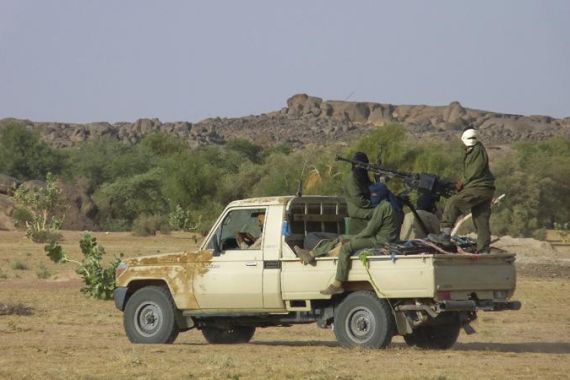Mali: A delicate Choice For ECOWAS
Neighbouring countries are growing worried about the rise of armed groups in the porous sub-Sahara region.

Life looks quite normal here in the capital on Mali, business as usual, but underneath lies a simmering discontent – Widening gaps between the political class and the army, and fears that Mali might disintegrate spreading chaos across west Africa and the Sahel.
Bamako has changed a lot since I left last April. You no longer know who’s who, who runs the country or what is next.
But obviously there huge problems. A few days ago the interim president Dionconda Traore sent a letter to the West African bloc ECOWAS asking for military intervention in the north where separatist Tuaregs and armed groups are asserting control gaining more ground.
In his request the interim president asks for the following:
– Enforce the capabilities of the security forces
– Beef up and equip Malian troops with weapons to be able to tackle the rebels.
– Deploy 3300 troops from ECOWAS in the north to restore the government’s authority.
A very short, straightforward letter in French that unequivocally asks for a military campaign to dislodge the rebels.
But the problem is that the interim president and his advisers chose, for some reason, not to talk to the people about the letter, causing rumours to spread.
But there is an obovious reason reason for this silence. Mali’s coup leaders, who still retain great power, are opposed to a military intervention.
A diplomatic source told me that in a meeting with ECOWAS leaders, the Malian interim president said he was in favour of a military intervention, only to be interrupted by his PM Cheikh Modibo Diarra – widely seen as a staunch ally of the army – who said “that would never happen!”
Mali coup leaders, led by captain Sanogo agreed last April to withdraw from the political scene and get back to their barracks, allowing the interim president to assume responsibilities without interference.
That however was true only in theory since the man never managed to exert his authority. His decisions were very often challenged to the growing frustration of neighbouring countries and the international community.
War and Peace
Neighbouring countries are growing worried about the rise of armed groups in the porous sub-Sahara region, coupled by a growing Tuareg-led separatist movement calling for an independent state called Azawad.
But the Tuaregs are not confined to Mali alone, they live in Algeria, Niger and Burkina Faso, and these countries know that an independent state in northern Mali will inspire all the Tuaregs to press for similar demands.
But the Tuareg rebellion has been temporarily put on the back burner with the spectacular rise of armed groups like Ansar Eddin (the Partisans of Faith), Attawhid Wal Jihad (The Movement for Monotheism and Jihad) and Al Qaeda in North Africa.
Armed with an impeccable political opportunism and awash with cash, they stepped in, filled in the vacuum and in few weeks swept into the major cities of the north – Kidal, Gao, Timbuktu and recently Douentza.
They say they have no intention to breakaway and that their goal is to spread Sharia law and combat idolatry- a reference to sufi traditions widely practiced in west Africa. They banned music, alcohol, and destroyed shrines and historic sites, blaming the West for promoting “debauchery and vice in the Land of Islam”.
The French and the US which have huge stakes in the region are grappling with a dilemma: inaction might bolster these groups to further expand their reach, while action can only be effective when the Malian are determined to be onboard – which doesn’t seem to be the case.
But for ECOWAS, the clock is ticking for a military push, no matter what the price, in order to restore stability and snuff out the armed groups.
There still remains a window of hope for diplomacy though. If the Tuaregs, the government and the indigenous armed groups like Ansar Eddin and Movement for Monotheism and Jihad (Al Qaeda are excluded from any deal) decide to settle their differences amicably.